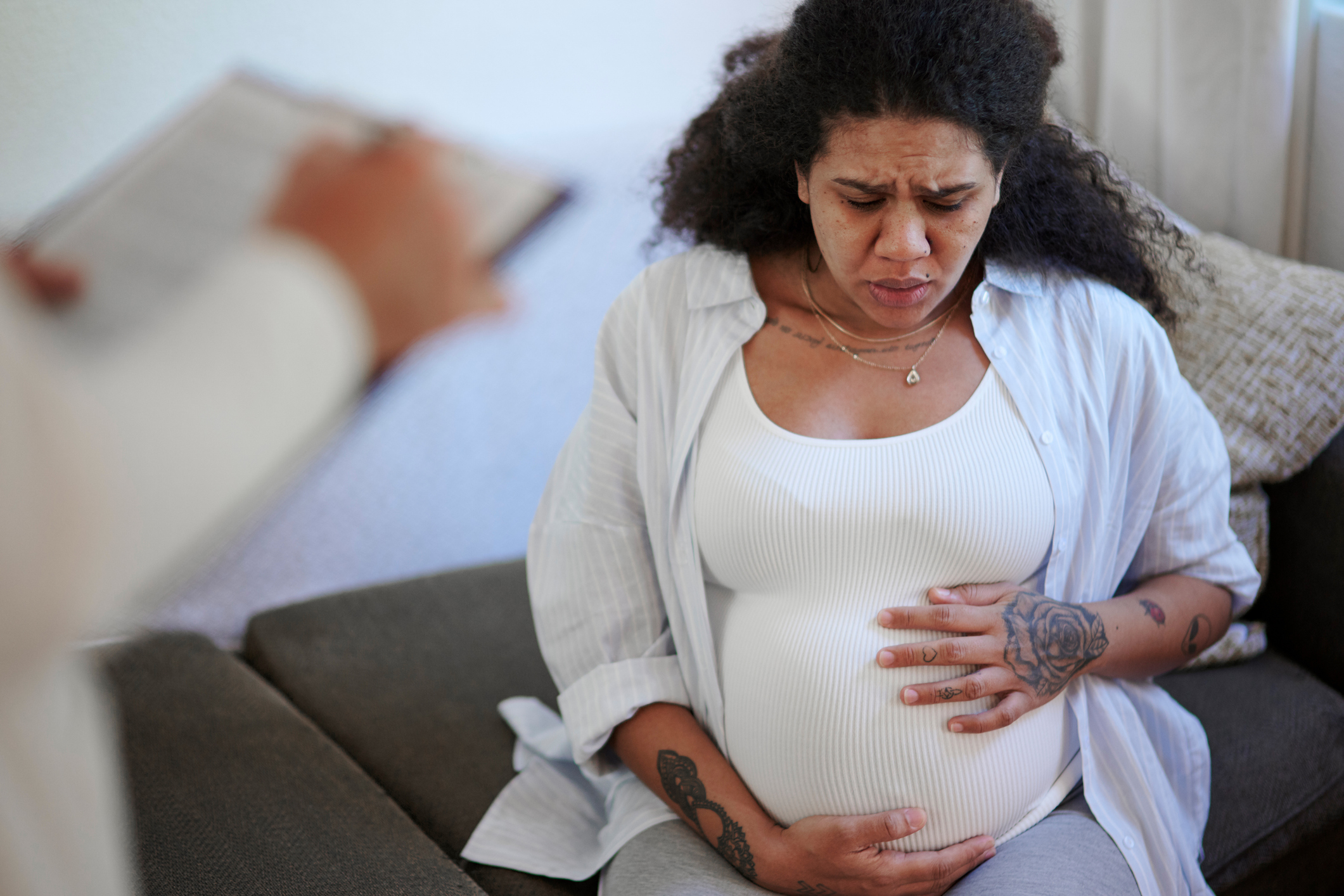While child birth classes prepared Jessica Bennett for many aspects of her labor and delivery, they didn’t quite ready her for the effects of the epidural she received.
““The epidural itself actually gave me the shakes and that is not something they mentioned in our childbirth class,” Bennett explained.
She gave birth in 2018 and, like so many other moms, needed an epidural to help manage pain while delivery her son.
Many women contemplate the decision to have an epidural before they ever enter the labor and delivery room. In fact, it’s one of the biggest decisions many moms-to-be face as they prepare to welcome their new child into the world. According to the National Institutes of Health an epidural, “is a way to deliver an anesthetic so that it stops pain signals traveling from the spine to the brain.” An epidural involves injecting a small amount of anesthetic into the epidural space of the spine. The purpose is to provide a total lack of feeling in one part of your body. In the case of childbirth, the numbness is from the mid-abdominal area to the pelvis and legs.
While the pain relief is greatly appreciated by many of those who receive an epidural, there are both are also risks associated with the injections.
Risks
Dr. Tamika Sea is the CEO and owner of Advanced Women’s Care Center. She says concerns linked to epidurals includes, nerve or spinal trauma, bleeding, risk for infection and spinal fluid leakage. Difficulty with patient movement and positioning in labor due to numbness and slowing of the labor curve in some patients are also potential risks.
“I have seen some patients with short-term pain at the insertion site, with back spasm or persistence of low back pain,” Dr. Sea said.
Marla Ervin delivered her children in 2015, 2016 and 2022. Her son was delivered by Cesarean section, an experience she says left a lasting impact on her.
“They put the epidural in and when I got in to get the Cesarean section, I felt them cutting and everything. It was really, to me, a traumatic experience,” Ervin recalled.
Chemere Francis gave birth to her only child in 2008. She wanted a non-medicated childbirth, but complications required her to have an emergency C-section.
“I cried. That was not my plan,” said Francis. “After the cesarean and I’m laying in the bed, my entire body was on fire. I was itchy all over. I was scratching welts into my body.”
Francis says she later learned that this was in fact a side effect to the epidural.
Benefits
Having an epidural isn’t all bad news. Dr. Sea says the biggest benefit of getting an epidural is the decrease of pain during labor.
“The advantages to an epidural would include a higher rate of pain relief for the patient vs. oral or intravenous pain medications,” the doctor explained.
She also says epidural injections are typically quick. The dosage can easily be increased or decreased, and it can be helpful in the event that a C-section is needed.
By the time Ervin had her third child, she had a better epidural experience.
“I signed a waiver for them to do an epidural and a spinal block. And I didn’t feel anything. It was a breeze this time,” the mom of three explained.
After-Effects
It’s not uncommon for women to report lingering issues after receiving an epidural. Ervin says while it hasn’t been anything serious, she does feels she has had after-effects.
“I had situations where my back would hurt, I had tingling and numbing in my legs. So I did a couple of chiropractic treatments and a massage therapy session once a month to work those areas,” Ervin said.
Francis says she feels like she can still detect a small scar on her back where the epidural was administered. Bennett says she did not feel like there were any lingering effects of an epidural. Dr. Sea reinforces this notions. She says she has never had a patient with long-term impacts from epidural usage.
Considering a Natural Birth
When asked about getting an epidural again, Bennet says she would, but doesn’t plan to have more kids. Francis and Ervin both said it would be required since they both have already had C-sections. But for those considering a natural birth, Dr. Sea says there are advantages and disadvantages of that, too. “
The benefits of a completely natural birth would include less risks of labor augmenting medications/procedures as well as the risks associated with pain medications given,” Dr. Sea explained.
There are also the possibilities of a quicker recovery, less hospitalization time, and quicker bonding with your baby.
“The downsides of natural birth would include risks for lengthy delivery, infection, and pain and risks to the fetus.”
